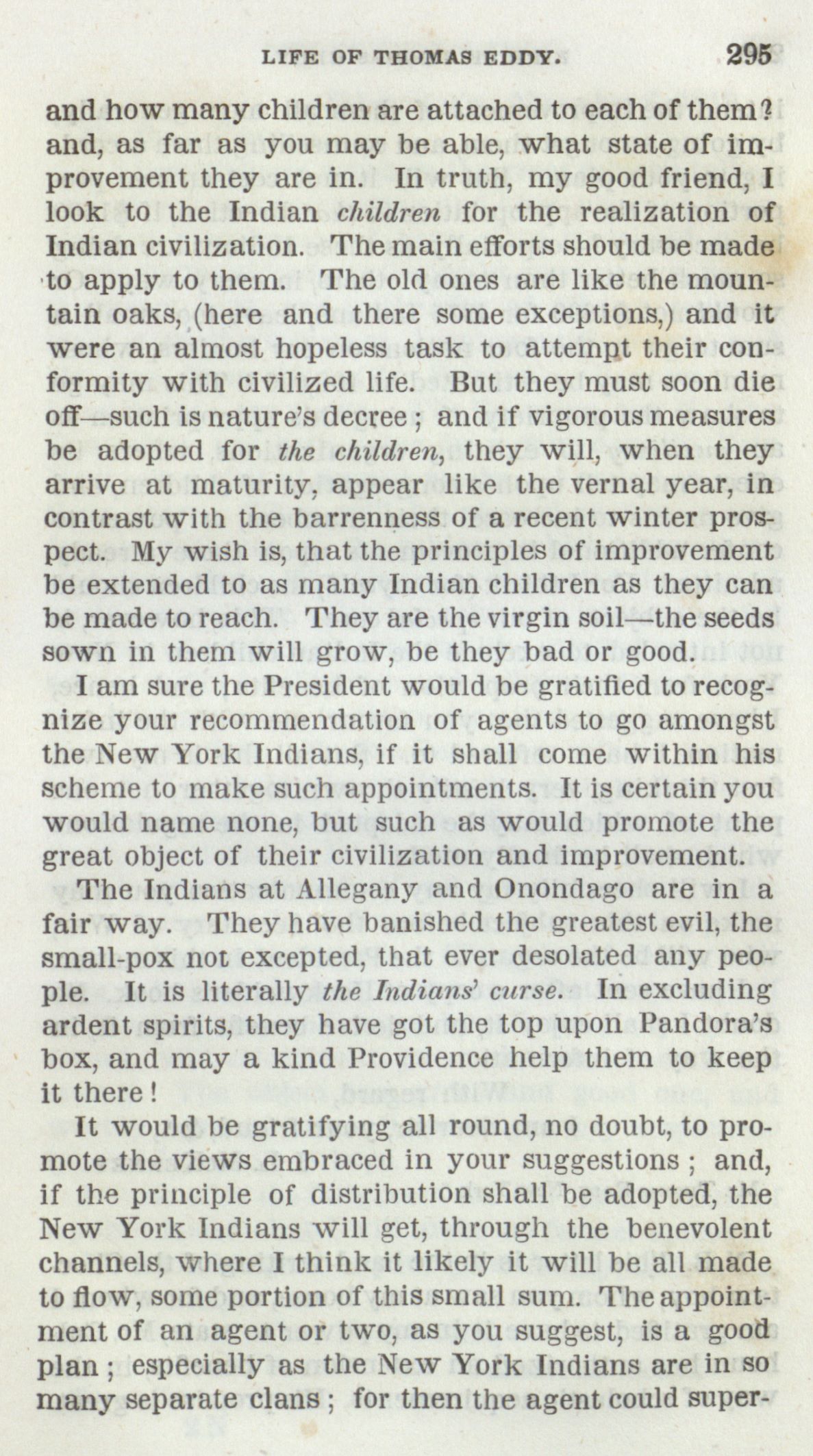and how many children are attached to
each of them?
and, as far as you may be able, what state of
im-
provement they are in. In truth, my good friend, I
look to
the Indian children for the realization
of
Indian civilization. The main efforts should be made
to
apply to them. The old ones are like the moun-
tain oaks, (here and
there some exceptions,) and it
were an almost hopeless task to
attempt their con-
formity with civilized life. But they must soon
die
off—such is nature's decree; and if vigorous measures
be
adopted for the children, they will, when
they
arrive at maturity, appear like the vernal year, in
contrast with the barrenness of a recent winter pros-
pect. My wish
is, that the principles of improvement
be extended to as many Indian
children as they can
be made to reach. They are the virgin soil—the
seeds
sown in them will grow, be they bad or good.
I am sure the President would be gratified to recog-
nize your
recommendation of agents to go amongst
the New York
scheme to make such appointments. It is certain you
would name none, but such as would promote the
great object of their civilization and improvement.
The Indians at Allegany
fair way. They have banished the greatest evil, the
small-pox not excepted, that ever desolated any peo-
ple. It is literally the Indians' curse. In excluding
ardent spirits, they have got the top upon Pandora's
box, and may a kind Providence help them to keep
it there!
It would be gratifying all round, no doubt, to pro-
mote the views
embraced in your suggestions; and,
if the principle of distribution
shall be adopted, the
New York
channels, where I think it likely it will be all made
to flow, some portion of this small sum. The appoint-
ment of an agent or two, as you suggest, is a good
plan; especially as the New York
many separate clans; for then the agent could super-

